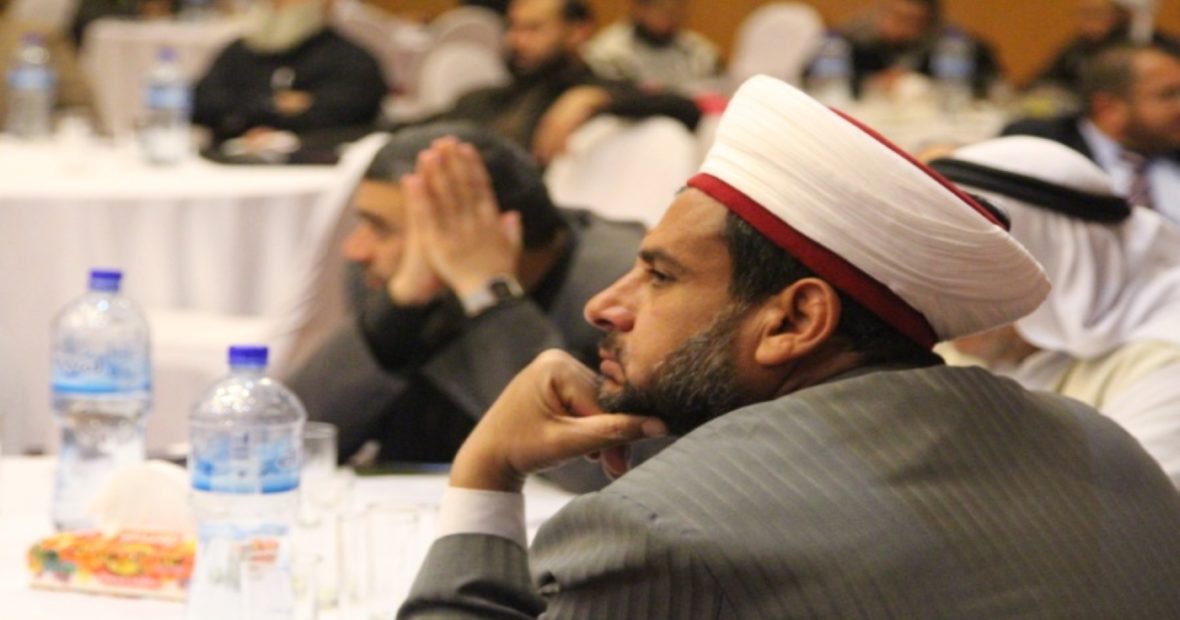The Ministry of Waqf & Religious Affairs (MoW) in Gaza, in cooperation with the International Committee of the Red Cross, organized a study day entitled “Protecting Health Care in Light of International Humanitarian Law and Islamic Law”, which gathered together nearly 100 imams and preachers from the MoW in addition to representatives of concerned authorities and actors including: Ministry of Health, Ministry of Interior, and the Palestine Red Crescent Society. It was designed to come up with practical measures and discuss ways of enhancing the protection of health care in armed conflicts and other emergencies, by bringing together all concerned on the table.
Various aspects of the issue were tackled during the study day and hence different topics were discussed including:
- Protection of health care in Islamic Law
- Protection of health care in IHL
- Challenges facing the health care in the field
- Challenges facing the health care in the health facilities
- Role of the Ministry of Interior in protecting health care

The event was an opportunity to bring together all concerned in order to highlight on the protection of health care concept and contemporary challenges. It was also an opportunity to recall the basic Islamic principles relevant to the protection of human dignity, highlighting its common values and rules with the international humanitarian law; where the protection of health care was recognized as a fundamental issue.
Consequently, the study day has come up with necessary measures to tackle relevant challenges. Different recommendations have been introduced and discussed, identifying everybody’s role. Recommendations reached by workshop participants are expected to assist the concerned parties and the ICRC, in formulating resolutions relevant to the measures to be taken to address this urgent humanitarian issue. “We count on these workshops not only to report their conclusions, but also to make a difference on the ground,” said Dr. Yousef Farahat from the MoW. The event was widely covered in traditional as well as social media, highlighting speeches, discussion and the recommendations reached by the participants.

